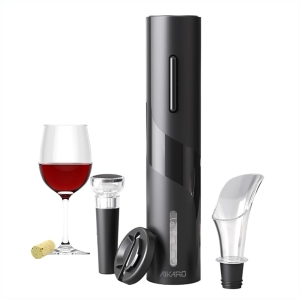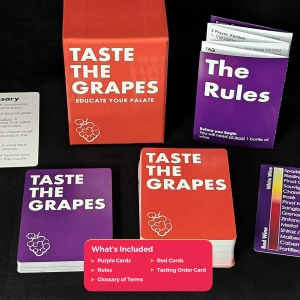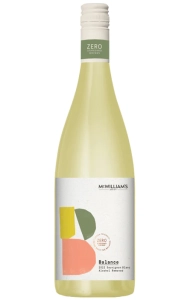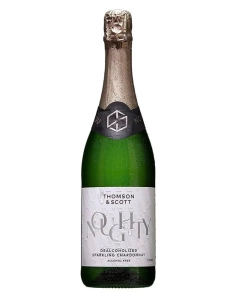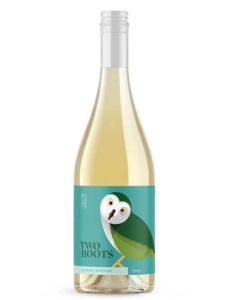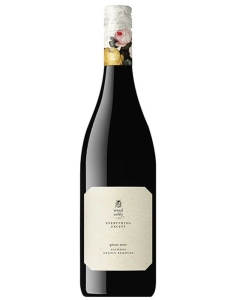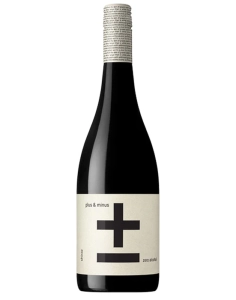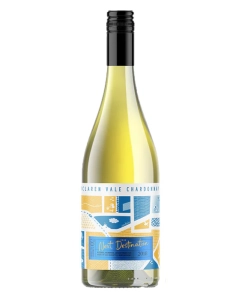Wine Gadgets: Gimmick or Game-Changers?
Wine lovers are always on the hunt for the next best thing to elevate their drinking experience, whether it’s a high-tech aerator, a quirky gadget, or a game that turns tastings into a competition. But with so many novelty products on the market, it begs the question: are they truly worth the hype, or just clever marketing? Let’s dive into some of the most unique wine gadgets and games out there and see if they’re worth adding to your collection.
The AIKARO Electric Wine Bottle Opener promises to take the hassle out of uncorking your favorite bottles with the press of a button. Sleek, rechargeable, and designed for effortless operation, it’s a gadget that certainly adds a touch of modern convenience to your wine routine. But is it a must-have or just a fun gimmick? For those who struggle with traditional corkscrews or want a quick and easy way to open multiple bottles at a gathering, this could be a game-changer. It eliminates broken corks, requires minimal effort, and looks impressive on your countertop. However, purists might argue that part of the charm of opening a bottle is the ritual itself—there’s something satisfying about the classic twist-and-pull of a manual corkscrew. Plus, if you mostly drink screw-cap wines (which are common in Australia), this might collect dust more than it gets used. Ultimately, if you love convenience, entertain often, or simply want a reliable way to uncork bottles with zero effort, the AIKARO Electric Wine Bottle Opener is worth considering. But if you enjoy the hands-on experience or prefer a minimalist approach, it may just be an unnecessary gadget in your wine arsenal.
The Redsack Electric Wine Dispenser & Whisky Aerator is marketed as a high-tech solution for pouring and aerating wine and whisky with a single touch, promising a smoother taste and more convenient serving experience. On one hand, this gadget offers practicality—eliminating the need for decanting and ensuring a mess-free pour, which could be especially useful for entertaining or casual wine drinkers who want instant aeration. However, critics may argue that it leans more towards gimmick than necessity. Traditionalists might prefer the ritual of decanting, believing that natural aeration over time enhances a wine’s complexity in a way that rapid aeration cannot replicate. Additionally, the effectiveness of electric aerators remains debated—does forcing oxygen through a wine truly mimic hours of decanting, or is it just a quick-fix placebo? For whisky, which typically does not require aeration, the added function seems even more questionable. Ultimately, whether the Redsack Dispenser is worth it depends on the user—convenience lovers may find it a fun and useful addition, while purists may dismiss it as an unnecessary gadget.
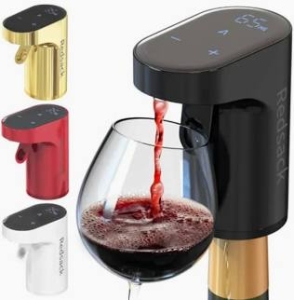
Redsack Electric Wine Dispenser & Whisky Aerator
Taste The Grapes, Tasting Card Games is a must-have for wine lovers and a fantastic way to level up your tasting skills while having fun. Whether you’re a casual sipper or a serious connoisseur, this interactive game turns any wine night into an engaging and educational experience. With challenge cards, blind tastings, and flavor prompts, you’ll refine your palate, discover new favorites, and maybe even outshine your wine-savvy friends. Perfect for dinner parties, cellar door visits, or a relaxed night in, Taste The Grapes is well worth the purchase—because great wine deserves great company and a bit of playful competition!
The Kogan 34 Bottle Wine Fridge offers a sleek and compact solution for wine storage, featuring adjustable shelves, dual-zone temperature control, and a stylish design that fits seamlessly into most spaces. While it may not have the premium build quality of high-end brands or the most advanced cooling technology, it provides excellent functionality for the price. Some users might find the noise level slightly noticeable or wish for more precise temperature stability, but for casual collectors or those looking for an affordable way to store and showcase their wines, it delivers solid performance. Considering its capacity, features, and affordability, it’s absolutely worth it—for the price and what you get, it’s great.
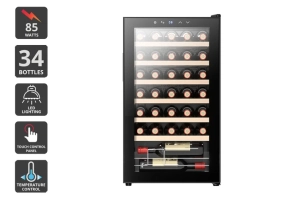
The Kogan 34 Bottle Wine Fridge
The AIKARO Electric Wine Decanter is marketed as a high-tech solution for aerating wine instantly, using an electric pump to speed up oxidation and enhance flavors. Proponents argue that it saves time compared to traditional decanting, making it convenient for casual drinkers and professionals alike. Some also claim that the controlled aeration can bring out subtle notes in younger wines that might otherwise take hours to develop. However, skeptics see it as a gimmick, questioning whether forced aeration truly mimics the nuanced effects of traditional decanting. While it may offer some improvement in aroma and taste, purists argue that it lacks the finesse of natural oxygen exposure and that swirling a glass or using a standard decanter is just as effective. Ultimately, whether it’s worth the investment depends on the user’s priorities—if convenience and speed are the main concerns, it might be a useful tool, but for those who appreciate the ritual and patience of traditional decanting, it may feel unnecessary.
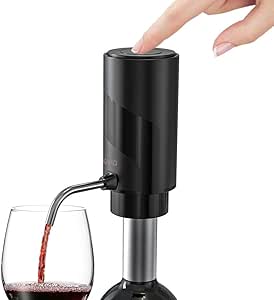
The AIKARO Electric Wine Decanter
The Huski Wine Cooler is a sleek, stainless-steel, vacuum-insulated sleeve designed to keep wine bottles chilled for hours without the need for ice or a bulky bucket. It’s perfect for outdoor picnics, long lunches, or simply enjoying a bottle at the right temperature without constant refrigeration. However, at a premium price, some may question whether a well-insulated cooler bag or a pre-chilled bottle in an ice bucket could do the job just as well for less. Still, considering its stylish design, durability, and convenience—especially for wine lovers who appreciate perfectly chilled pours—it’s absolutely worth it.
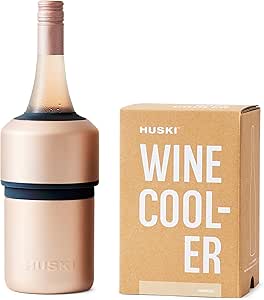
The Huski Wine Cooler
The Coravin Timeless Three+ Wine Preservation System is a game-changer for wine lovers who want to enjoy a glass without committing to the whole bottle. By using a fine needle to pierce the cork and replace the displaced wine with argon gas, it allows wines to stay fresh for weeks, months, or even years. For collectors and those who enjoy premium wines, this can be invaluable, preventing oxidation and waste. However, the price tag is steep, and for casual drinkers who regularly finish a bottle within a few days, a simple vacuum pump might do the job just fine. There’s also the occasional risk of cork deterioration over time, which can affect performance. But for those who savor special bottles over time and want the freedom to sample without rushing, it’s absolutely worth it.
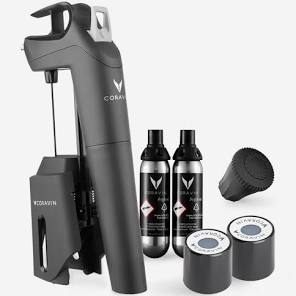
The Coravin Timeless Three+ Wine Preservation System
The OTOTO Vino Corkscrew Wine Bottle Opener is as much a conversation starter as it is a functional tool. Designed with OTOTO’s signature playful aesthetic, it turns the simple act of uncorking a bottle into a bit of theatre. Its quirky design may not appeal to those who prefer a sleek, professional-grade corkscrew, and at a higher price point than standard openers, some might question whether it’s more novelty than necessity. However, for those who appreciate a touch of whimsy in their kitchen gadgets—or need a fun gift for a wine-loving friend—the charm, durability, and ease of use make it worth it.
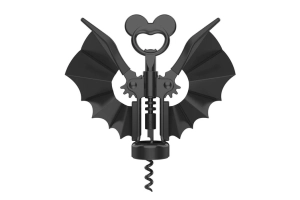
OTOTO Vino Corkscrew Wine Bottle Opener
The Fred Coq au Vin Wine Bottle Stopper is a quirky, rooster-shaped novelty item that adds a touch of humor to your wine collection. On one hand, it’s a fun conversation starter, perfect for dinner parties or as a cheeky gift for wine lovers. Plus, it serves its practical purpose—keeping an open bottle sealed to maintain freshness. However, some might argue that for the price, a simple, more airtight stopper would do the job better, and the design may not be to everyone’s taste. But for those who appreciate a bit of whimsy in their wine accessories? Definitely worth it.
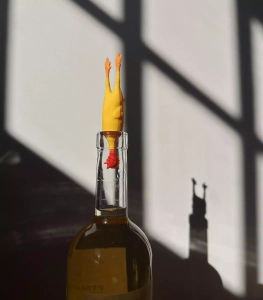
The Fred Coq au Vin Wine Bottle Stopper
Whether these gadgets will enhance your wine experience comes down to personal preference, enjoyment, and how you like to share your wine. It’s all about what works for you. So why not give them a try while you build your wine collection? You might just find a new favorite tool along the way!

